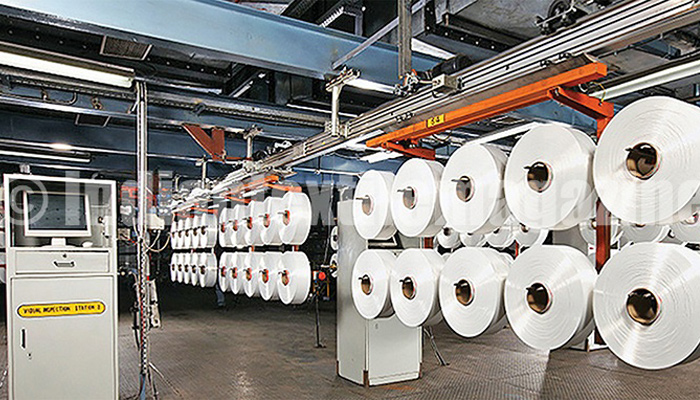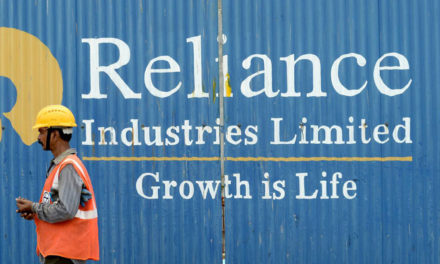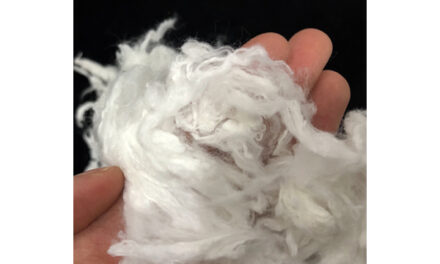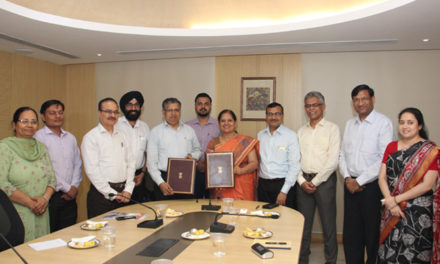Domestic polyester fibre and yarn manufacturers heave a sigh of relief due to the government’s decision to raise customs duty on their import to encourage Indian producers. The incerase in import duty is set to help restrict its annual import to the tune of $1.6 bn. To encourage domestic players, the government of India this week raised import duty on all polyester items in the value chain. With this, the basic customs duty on 76 textile and apparel items raised to 20 per cent from the existing 10 per cent. One of the main manmade fire fabrics tariff line included for increasing effective customs duty is other woven fabrics dyed containing 85 per cent or more by weight of textured polyester filaments including shirting, suitings and sarees.
Because of low customs duty, Indian traders in the textile value chain were importing a lot of apparel from Bangladesh due to low labour cost there. Also, a lot of consignments were reported to have been undervalued to pay low effective rate of customs duty. To tighten this loophole, however, the government fixed import duty of Rs. 38 a sqr mtr on polyester than the fixed 20 per cent of import duty earlier. “The revision in import duty is positive for domestic polyester manufacturers. The demand for low price polyester has been constantly increasing which is expected to continue in future as well. Thus the increase in import duty would benefit domestic players at large,” said Madhusudan Bhagaria, Chairman and Managing Director, Filatex India Ltd, one of the largest polyester manufacturers in India.
Filatex plans to increase its production capacity by nearly 90,000 tonnes to 237,000 tonnes for FY 2018-19. A similar capacity expansion was planned by other polyester manufacturers as well. Polyester prices have moved in a narrow range over the last few months following crude oil prices. Data compiled by the Confederation of Indian Textile Industry (CITI) showed $1.6 bn worth of man-made filaments and man-made staple fibre products imported into India during the financial year 2017-18. Besides fabrics, import of manmade fibres (MMF) and MMF yarns have also surged since June 2017 when the goods and services tax (GST) was implemented. Import of polyester staple fibre (PSF) and viscose staple fibre (VSF) had increased by 5 per cent and 20 per cent respectively during the financial year 2017-18 including a similar increase in imports of other products in the polyester value chain.
“In case of import of polyester spun yarn, viscose spun yarn and nylon spun yarn, the increase was 94 per cent, 526 per cent and 15 per cent respectively which is impacting domestic manmade fibre and MMF yarn manufacturers in a big way. This was very critical to protect the domestic fabrics segment, as post-GST its imports had substantially surged due to the withdrawal of countervailing duty (CV) and special additional duty (SAD) on imports. Therefore, it also needs to consider an increase in Effective rates of BCD other products of MMF textile value chain,” Narain Aggarwal, Chairman, Synthetic The Synthetic & Rayon Textiles Export Promotion Council (SRTEPC).
Indian polyester manufacturers including Reliance, Filatex India and JBF Industries have added heavily to their existing manufacturing capacities to support its rising demand across all polyester value chain.
Sanjay Jain, Managing Director of TT Ltd and Chairman of CITI said that the textile industry heaves a major relief as they were going under immense pressure post-GST. A substantial drop in import duty was observed after implementation of GST which has encouraged cheaper imports. This has come as a great relief to the domestic manufacturers, he added.


















